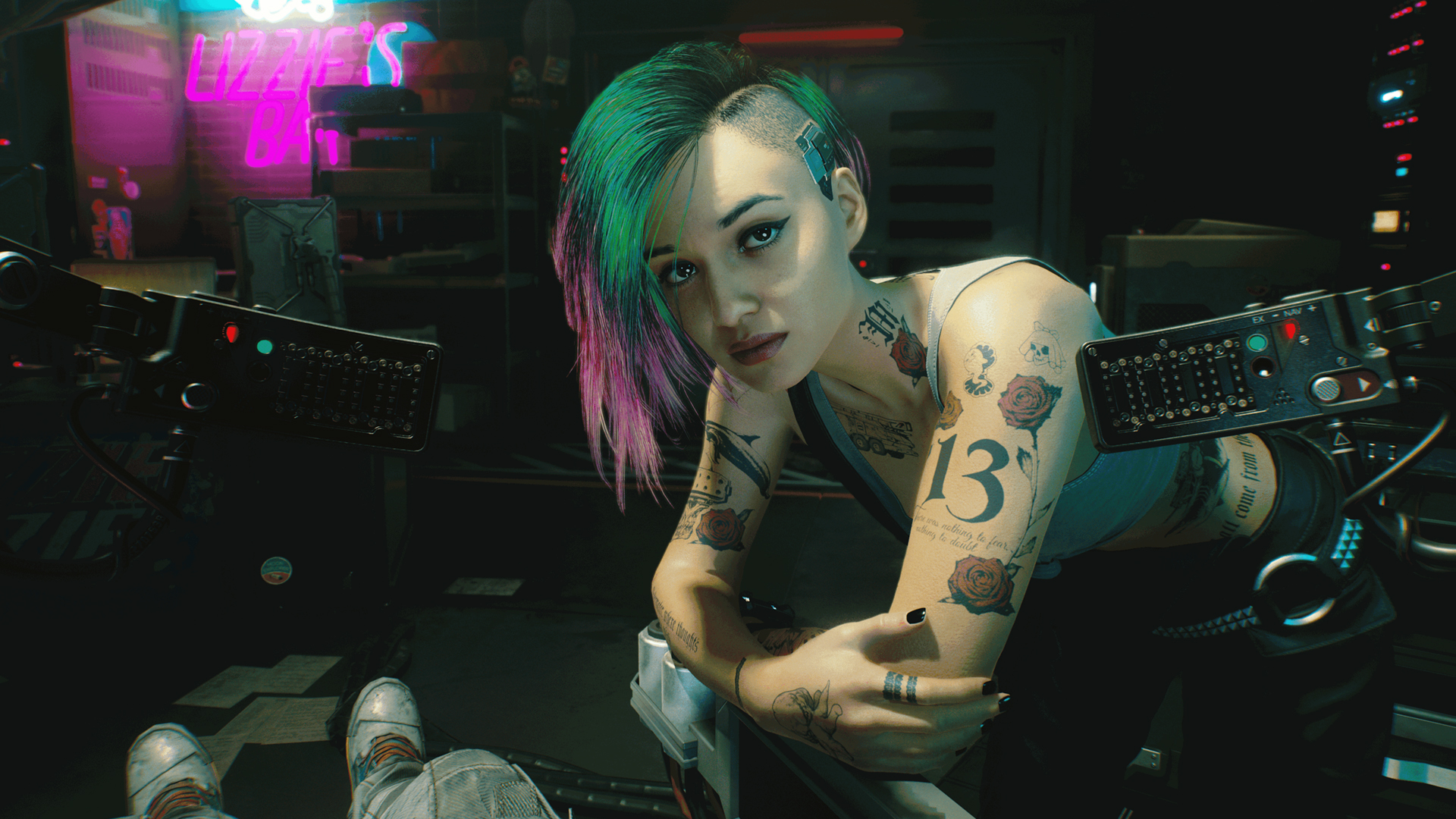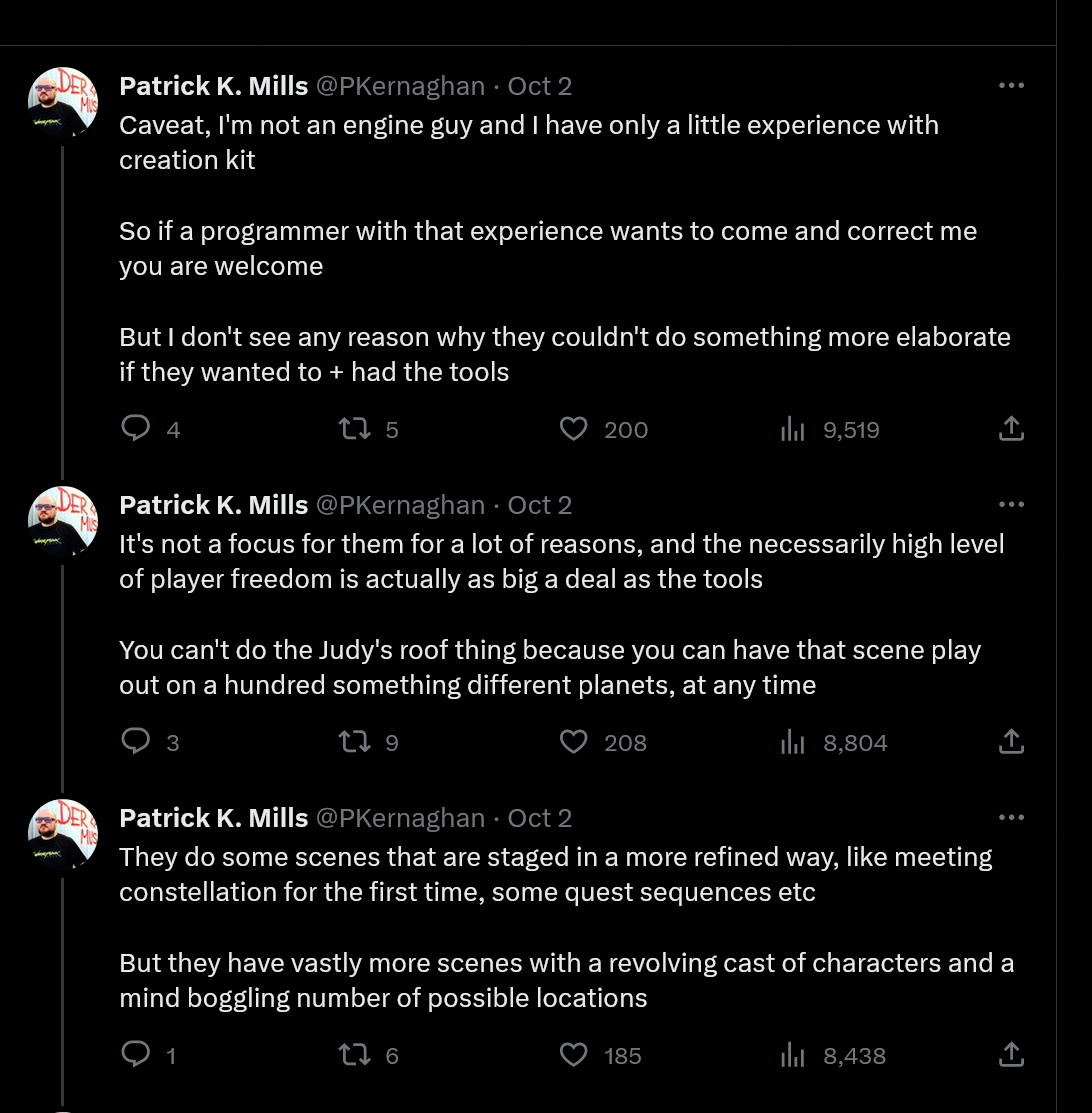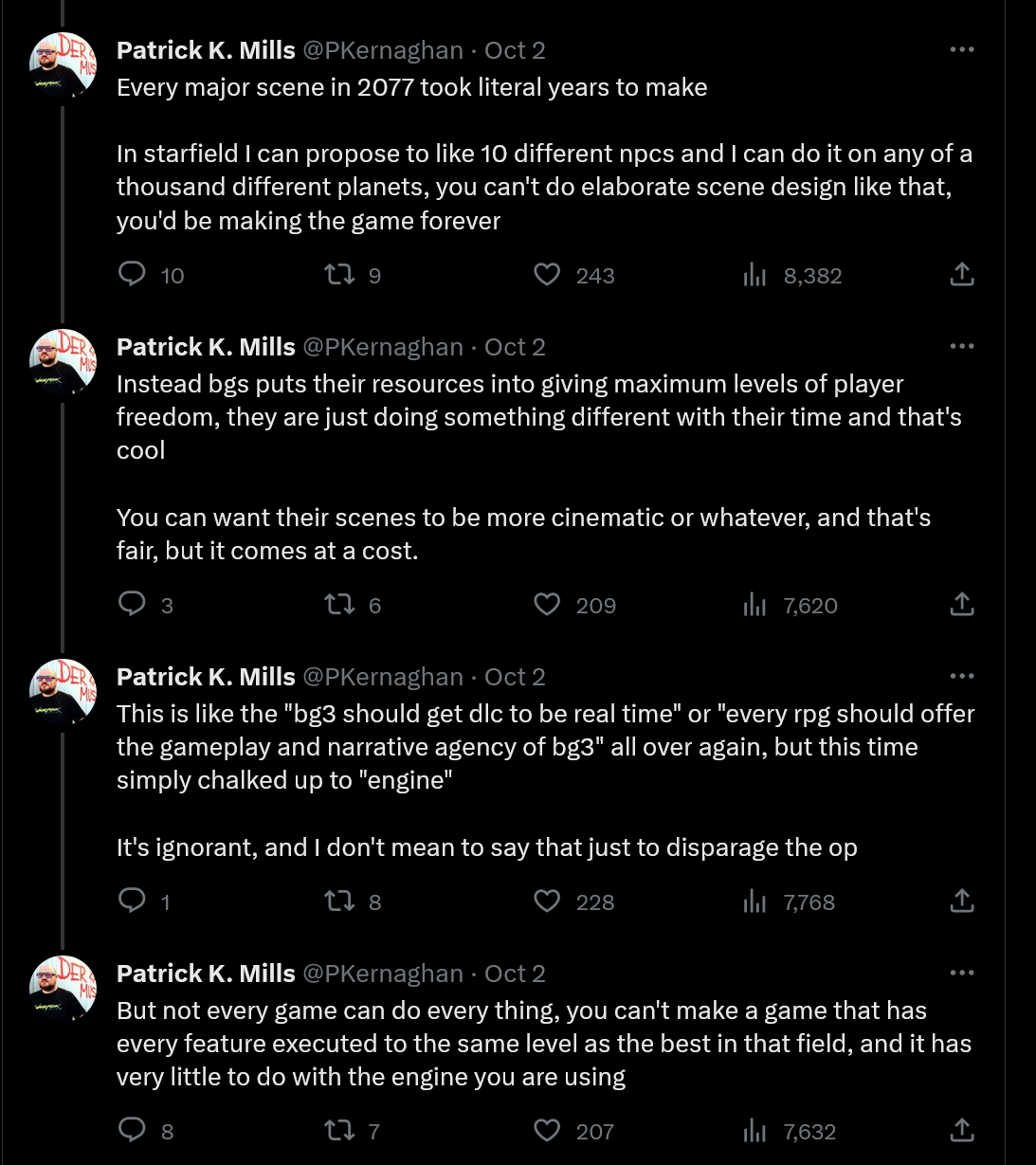Cyberpunk 2077 developer defends Bethesda's work on Starfield: 'They are just doing something different with their time and that's cool'
Senior quest designer Patrick K. Mills says the differences between Cyberpunk 2077 and Starfield are mainly just a matter of priorities.

Starfield is a good game, but it's also been the subject of a perhaps-unexpected level of criticism from players, exacerbated by the triumphant Cyberpunk 2077 2.0 comeback. But in response to a player's complaints about Starfield's use of Creation Engine 2—an updated version of the aging Creation Engine that was first used in 2011 for The Elder Scrolls 5: Skyrim—one Cyberpunk 2077 developer took a minute to defend Bethesda's sci-fi RPG, saying the issue isn't the technology but that Starfield developers "are just doing something different with their time."
"I've been really feeling more and more critical of Starfield after going back to Cyberpunk, with the constant load screens, awful dialogue camera and lackluster animations," Twitter user Synth Potato tweeted. "I really don't think even with patches that Starfield can ever really match [Cyberpunk 2077's] level of quality, this is fundamentally the fault of the Creation Engine."
But Cyberpunk 2077 senior quest designer and self-declared Starfield fan Patrick K. Mills, who also served as a quest designer on The Witcher 3 and its expansions, expressed a very different opinion on how each game approached cinematics: He believes that the issue is not one of capability, but of priority.
"It's not a focus for them for a lot of reasons, and the necessarily high level of player freedom is actually as big a deal as the tools," he tweeted. "You can't do the Judy's roof thing [in Starfield] because you can have that scene play out on a hundred something different planets, at any time.
"They do some scenes that are staged in a more refined way, like meeting constellation for the first time, some quest sequences etc. But they have vastly more scenes with a revolving cast of characters and a mind boggling number of possible locations."

By comparison, he said that every big scene in Cyberpunk 2077 took years to make—if someone tried to do that in a game with the scale of Starfield, "you'd be making the game forever."
"Instead BGS puts their resources into giving maximum levels of player freedom, they are just doing something different with their time and that's cool," Mills wrote. "You can want their scenes to be more cinematic or whatever, and that's fair, but it comes at a cost."
The biggest gaming news, reviews and hardware deals
Keep up to date with the most important stories and the best deals, as picked by the PC Gamer team.
Mills said that he wasn't replying to disparage the original poster, but simply to make the point that "not every game can do everything. You can't make a game that has every feature executed to the same level as the best in that field, and it has very little to do with the engine you are using."

I'm not a game developer, but I think it's a reasonable take. I haven't played Cyberpunk 2077 or Starfield yet (yes, I am way behind) but I played a lot of The Witcher 3 and earlier Bethesda games, and they are fundamentally different. The Witcher 3 plays like a sandbox game, but at its core it's a linear experience with encounters fixed at certain locations and times. Starfield, on the other hand, is a sandbox: Some elements are preset but there's extensive use of randomization, and that means a lot of unexpected stuff can happen anytime, anywhere. It may occasionally be janky, but as Mills said about CD Projekt's more cinematic approach to Cyberpunk 2077, that's part of the cost of that level of player freedom—and as we declared recently, at this point in Bethesda's history, it's not a bug, it's a feature.
PC Gamer's online editor Fraser Brown recently shared his own preference for Cyberpunk 2077 over Starfield, although that's based more on writing and worldbuilding than underlying technology. "The confident aesthetic might be aggressively garish, but I love it," he wrote. "The writing blesses the world with a real sense of place, and deftly hops between emotional resonance and cocky comedy. The quest design, though often quite simple, is supremely effective, and elevated by compelling set ups, car chases and high-octane brawls.
"These points in Cyberpunk's favour have always been around but were just undermined by bugs and janky systems and underdeveloped character progression—issues that are no longer as significant, or gone entirely. But hey, maybe in a few years I'll give Starfield another go and finally find something to love about it."

Andy has been gaming on PCs from the very beginning, starting as a youngster with text adventures and primitive action games on a cassette-based TRS80. From there he graduated to the glory days of Sierra Online adventures and Microprose sims, ran a local BBS, learned how to build PCs, and developed a longstanding love of RPGs, immersive sims, and shooters. He began writing videogame news in 2007 for The Escapist and somehow managed to avoid getting fired until 2014, when he joined the storied ranks of PC Gamer. He covers all aspects of the industry, from new game announcements and patch notes to legal disputes, Twitch beefs, esports, and Henry Cavill. Lots of Henry Cavill.

